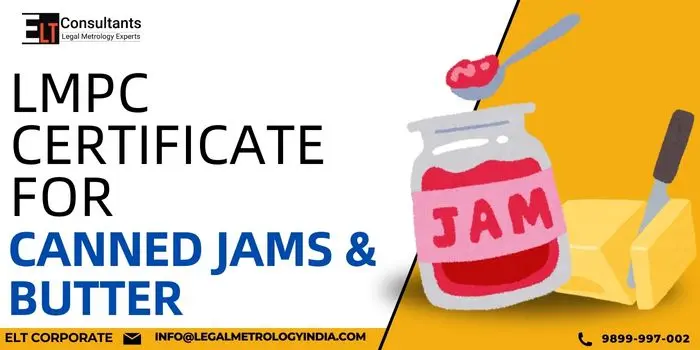Legal Metrology Act, 2009 in India deals with the units and methods of weights and measurement concerning the mandatory technical and legal compliance to ensure public guarantee from the angle of security and accuracy of weightmeant and measurement. Several disputes under legal metrology have been raised in the last few years and the Act aims to set and enforce the standards of weights and measures to regulate trade and commerce in weights measures and other goods sold or distributed by weight, measures, or a number and to regulate other connected matters.
The act was introduced to replace the “Standard of Weights and Measures Act, 1976” and the “Standards of Weights and Measures (Enforcement) Act, 1985 the provision of the act came into force on the 1st April 2011. The Legal Metrology (Packaged) Rules, 2011 pertains to goods that are sold and provided how declaration is made and has to be made and what declarations on a packaged commodity meant to be for the sale of the commodity. Weights and measures offences and punishment under IPC.
Supreme Court on Legal Metrology Cover Offences of Weights and Measures
The Supreme Court in its judgement in the matter of State of UP vs. Aman Mittal on 4th September 2019 held that section 3 of legal metrology Act, 2009 overrides the provisions related to weights and measures covered under chapter XII of Indian Penal Code, 1860.
Further it continues that section 3 of the Act states that provision of the Act will override the provision of any other law and the act regulates the trade and commerce of weights and measures, and goods sold or distributed by weight, measures or numbers.
Observations by Supreme Court on Section 3 of Legal Metrology Act
Relying on the above-mentioned matter which is titled the “State of UP vs. Aman Mittal” Relying party on the observation made by the High Court the Supreme Court observed the followings:
- Section 3 of legal metrology act completely overrides the provision of chapter XII of IPC in respect of the offences and penalties imposed for violation of the provision of the act.
- If the offence is covered under the provision of the act and the accused cannot be charged for the same under chapter XII of IPC.
- The Hon’ble Supreme Court set aside the entire order of the High Court except the portion relating to section 265 and section 267 of IPC.
- The Supreme Court held that reading of section 51 of the act makes it clear that the provision of IPC insofar as they relate to offences with regards to weights or measures shall not apply to any offence which is punishable under the act.
- Offences like fraud, criminal intention, and criminal conspiracy are not covered under the act, hence such offences shall be prosecuted under IPC as their trial is not inconsistent with the act of legal metrology.
Penalties under the Legal Metrology Act
Offences and penalties under the Act are specified in chapter V of the act which says the followings:
Section 36 (1) of Legal Metrology Act
- Section 36 subsection 1 of the Act provides a penalty for packaging, selling, importing, manufacturing, and distributing of the packages which does not confirm the LMPC declaration on it shall be punished with a fine which may extend to 25,000.
- However, the fine for the second offence may extend to rupees 50,000 and,
- Fine for the subsequent offences which shall not be less than ₹50,000 but which may extend to rupees one Lac or with imprisonment which may extend to one year or with both.
Section 27 of the Act
- Section 27 of the act provides the penalty for the manufacture or sale of non-standard weights or measures that shall be punishable with
- A fine which may be extended to ₹20,000 and
- For the subsequent or second offence with imprisonment for a term which may extend to three years or with fine or both.
Regulation 32 of the Rules
Regulation 32 of the rules impose penalties on manufacturers, Packer, or importer of the commodities for non-registration under the provision of rules or contravention by other rules.
Section 36 (2) of the Act
- Section 36 subsection 2 of the act provides punishment for manufacturing, packing, or importing any pre packed commodity with error in net quantity as may be prescribed.
- The punishment may be a fine of not less than ₹10,000 which may extend to Rs. 1 lac or with imprisonment for a term which may extend to one year or with both.
Section 38 of the Act
- Section 38 of the act provides a penalty for non-registration by the importer of weights or measures.
- The offence is punishable with a fine which may extend to Rs. 25000 and for the subsequent offence with imprisonment for a term which may extend to six months or a fine or both.
Offences by companies under legal metrology
- An offence can be committed by the companies under legal metrology where a company must nominate a person who will be held responsible for the conduct of the company and communicate the same to the director of legal metrology or the concerned controller.
- In the case where no one is nominated then the person in charge or the person responsible for the operation of a company will be held responsible for such misconduct or fraud.
- However the company may be directed by the court to publish its name along with the offence committed in the newspaper and their costs.
Compounding of Offences under Legal Metrology
- Compounding of offences under legal metrology, section 48 of the act provides that some offences may be compounded either before or after the institution of prosecution on payment of a prescribed amount.
- Also the various directions have been given by the Delhi High Court for regular checks on E-commerce firms.
- No offences can be compounded if the similar offences have been committed earlier or the offender is a habitual offender and committing the offences subsequently within three years of the date of the first offence which was compounded.
An Appeal Under Legal Metrology
An appeal under legal metrology can be filed to the next higher authority against all decisions or orders of an officer of legal metrology within 60 days from the date of passing of the decision or an order by the official.
LMPC Registration Under Legal Metrology
- As per regulation 27 of the rules every packer, importer, or manufacturer of the commodity is required to obtain the LMPC registration.
- Applicants can apply by filing an application with the controller or director along with submissions of its particulars including,
- Applicant shall provide the complete address of the premises, name of the commodity, name of the manufacturer along with the payment of requisite fees.
Who is the dealer under legal metrology?
As per Section 2 subsection B of the act, dealer concerning any weights or measures is a person who carries directly or otherwise the business of selling buying, supplying, or distributing any such weights or measures whether for
- cash, or
- deferred payment, or
- for commissions,
- remuneration, or
- other valuable consideration
Includes a Commission agent, and importer, a manufacturer who sells, supplies, distributes, or otherwise delivers any weights or measures manufactured by him to any person other than a dealer.
Conclusion
The Legal Metrology act covers the provision relating to weights and measures whereas Indian Penal Code (IPC) is a code that extensively defines several offences and their sentences accordingly overlapping only two provisions are a covenant with the same offences in the above-mentioned case was only between section 3 of the Act in chapter XII of IPC. In the above discussed matter Hon’ble Supreme Court has rightly given preference to section 3 of the act which overrides chapter XII.
The Hon’ble Supreme Court has also pointed out that section 3 of the act does not deal with offences such as
- Fraud
- Criminal conspiracy, and
- Criminal intent accordingly only IPC will be restored to prosecution of all offences.



